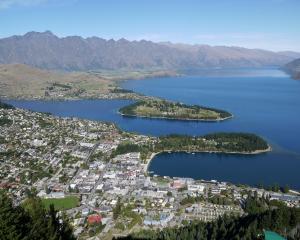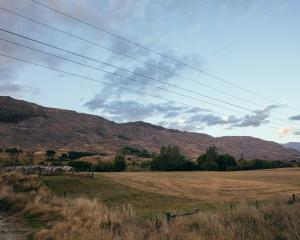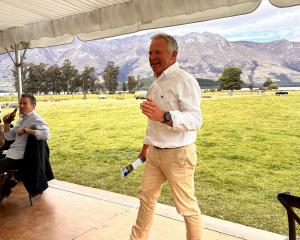A Hawea Flat farmer can continue cultivating his land after an Environment Court ruling found in his favour yesterday.
The court cancelled an interim enforcement order which had stopped Dougal Innes from carrying out any further vegetation clearance or discing on his property next to the Clutha River since March 3.
The case was brought by the Royal Forest and Bird Protection Society of New Zealand, which said significant native vegetation was being destroyed by the cultivation work.
Resource consent should have been required under the rules of the Queenstown Lakes District Council's district plan, the society said.
In delivering his finding verbally yesterday following a four-day hearing in Queenstown, Judge John Hassan said continuation of the interim order would serve ''no valid resource management purpose''.
Mr Innes could resume developing the area of land he had already cleared and disced, as it was unlikely any indigenous vegetation - as defined by the district plan - remained or could be recovered.
It was unlikely the district plan would be breached by any further disturbance.
But the court found clearance of indigenous vegetation on the as-yet-uncultivated remaining land would be a restricted discretionary activity.
Mr Innes could not cultivate that area without first getting resource consent, if his proposed activity required it.
The court was satisfied Mr Innes had ''demonstrated at least good intent'', Judge Hassan said.
That was evident in the fact he had not disturbed areas of his land containing historical features while waiting for advice from an archaeological authority and in the patience he had shown during the Forest and Bird legal action.
Forest and Bird had argued environmental effects were the critical consideration, rather than the effects on the parties.
But Judge Hassan said it was relevant to consider financial hardship to a person.
The court considered it unjust to maintain the order for reasons including the ''undue financial hardship'' it would impose on Mr Innes who had acted responsibly and with due diligence before beginning clearance work.
Council officers who advised Mr Innes he did not require resource consent for the activity ''could not be said to have obviously got it wrong either''.
It was ''most unfortunate that due to the council's systems error'' the ecological assessment findings of the property - noting the presence of indigenous vegetation - were not provided.
Mr Innes - who had told the court he invested his family's life savings in the property - expressed relief yesterday, following what he described as a stressful few weeks.
''I'm happy, there's no doubt about that.''
He thanked his supporters, including the large number of farmers who had been present in court throughout the hearing.
Following the decision, Forest and Bird Otago Southland field officer Sue Maturin said a special part of Central Otago had been lost.
''If the Queenstown Lakes District Council had acted to stop the destruction as soon as Forest and Bird alerted it, we may not have lost one of the best and biggest remaining areas of short tussock grasslands, cushion fields, and dry land ecosystems in the Upper Clutha Basin.
''This case highlights the need for councils to be much better at advising landowners about their obligations under district plans; to have clear rules to protect biodiversity; and to strongly uphold the integrity of their plans.''
Forest and Bird would decide on any further action after it had seen the written findings, its lawyer Sally Gepp said.












